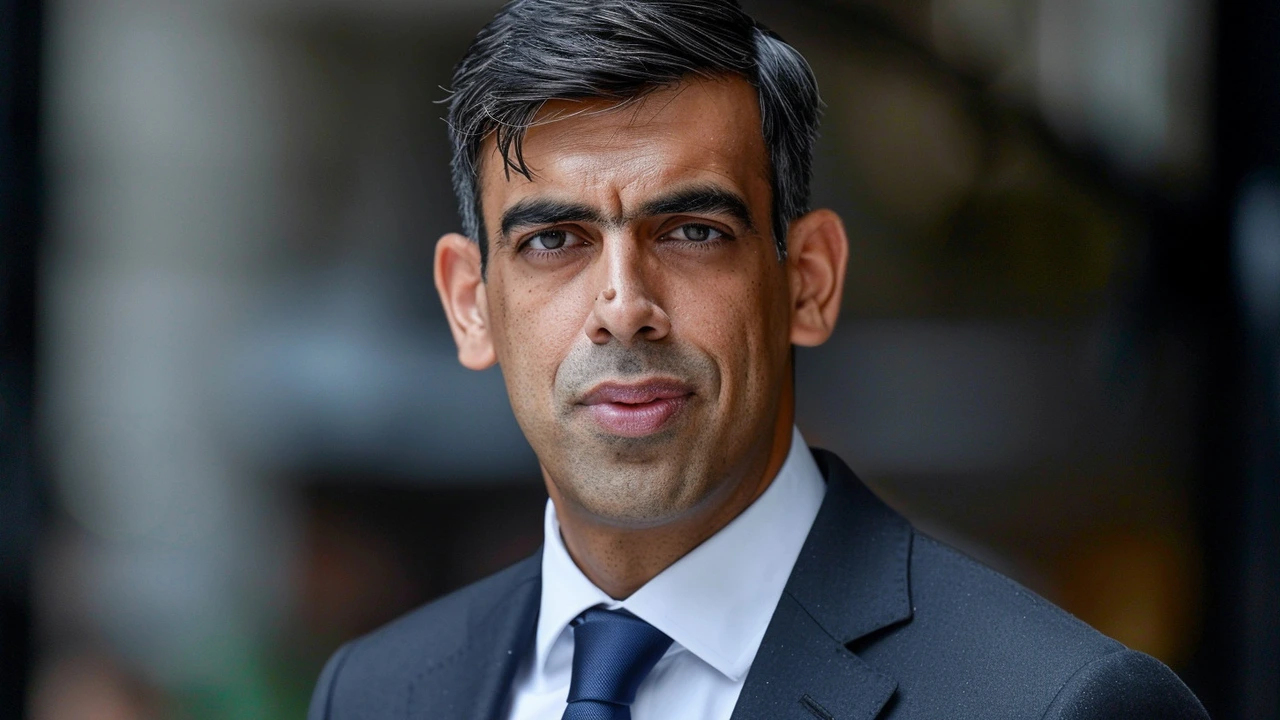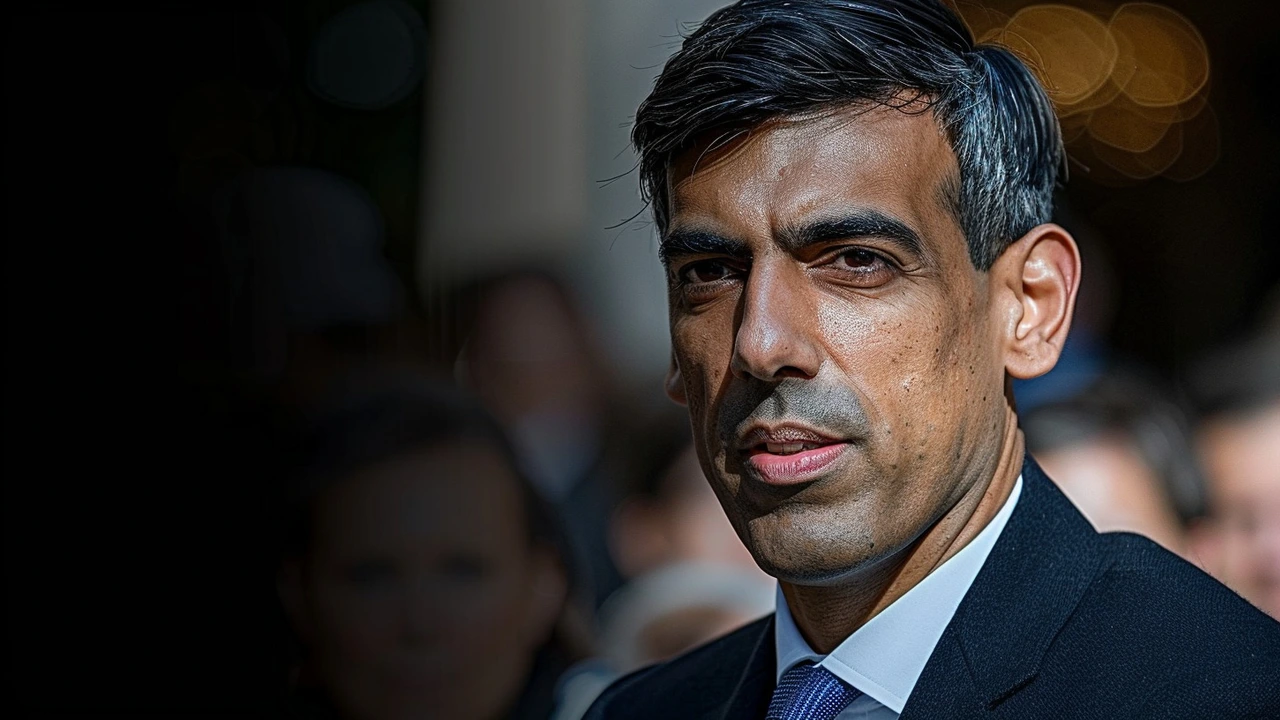As the United Kingdom heads into what promises to be one of its most charged elections, Prime Minister Rishi Sunak has decided to place defense and war at the forefront of his campaign. In an atmosphere of heightened electoral fervor, Sunak is underlining the significance of bolstering the nation's defense capabilities in the face of escalating global threats. The Prime Minister didn't mince his words as he vividly portrayed a world fraught with danger from countries like Russia and China, and the ever-present threat of Islamic extremism. His stark warning is aimed at rallying the nation behind the importance of security and strengthening the country's defense lines.
Sunak's narrative paints a perilous picture of the current global landscape, comparing it to the Cold War era when the world teetered on the edge of superpower tensions and nuclear threat. With this rhetoric, Sunak seeks to instill a sense of urgency among voters, emphasizing that now, more than ever, it is crucial for the UK to ramp up its defense strategies. He took a swipe at Labour leader Keir Starmer, arguing that Starmer lacks the resolve to ensure the nation's safety. This critique forms a core part of Sunak's strategy to differentiate himself and his party from their political opponents.
Defense Spending: A Key Pillar of Sunak’s Campaign
Central to Sunak's campaign promises is a commitment to increase defense spending to 2.5 percent of the Gross Domestic Product (GDP) by the year 2030. This ambitious target aims to bolster the UK's military capabilities and fortify its readiness to tackle any emerging threats. However, this declaration hasn't been without its critics. John Healey, the Labour Party's defense spokesman, was quick to point out that Sunak’s promise remains an aspiration rather than a concrete plan currently in effect. This distinction is noteworthy because while the Conservative leader's intentions might be noble, translating them into actionable policy could be a different challenge altogether.
One of the major hurdles highlighted by critics is the current state of the British military forces. Although increasing defense spending is undeniably important, experts argue that it may not be sufficient in addressing the multifaceted needs of the country’s armed forces. For instance, concerns have been raised about the size of the British army, which has seen reductions over recent years. Similarly, issues such as the decommissioning of Royal Navy ships and variety of gaps in munitions stockpiles and essential equipment underscore the broader challenges faced by the UK’s military. Simply injecting more funds may not resolve these pressing issues comprehensively.

The Specter of Global Uncertainty
Sunak's alarmist tone resonates strongly in a world where geopolitical uncertainties appear to be increasing. The ongoing conflict in Ukraine serves as a reminder of not only the lurid ambitions of Russia but also the unpredictable nature of contemporary warfare. Meanwhile, the rising tensions over Taiwan highlight the persistent friction between China and Western democracies. These developments are influencing defense policies and the allocation of resources in Western nations, including the UK. Against such a backdrop, emphasizing defense might seem more than just a political maneuver – it might be essential for ensuring the nation’s safety.
However, Sunak's focus on beefing up defense also has another dimension of great significance – the upcoming US elections. Former President Donald Trump has made a strong bid for the presidency, and a potential victory could change the dynamics within NATO fundamentally. Trump has previously been vocal about increasing the burden on NATO countries to enhance their own defense spending. Should he return to power, the UK could face heightened expectations from its key ally to contribute more significantly toward NATO’s collective defense initiatives.
A Balancing Act for the Voters
Sunak's defense-centric campaigning throws voters into a delicate balancing act. On one hand, they must consider the palpable threats that Sunak has brought to their attention. But on the other, they cannot ignore the pragmatic aspects of his promises. While it's easy to rally behind the need for stronger defense, voters must also weigh the feasibility of implementing the proposed spending increases and the timeline suggested by Sunak. Election day will not just be about choosing between parties – it will be about choosing the direction in which the UK’s defense policy will evolve for years to come.
As the election draws closer, more nuances surrounding these promises are likely to emerge. Analysts and voters alike will be keenly observing how both the Conservatives and Labour navigate the complex discourse of national security. What remains clear, though, is that the issue of defense will not be brushed aside. It will stand tall at the heart of this campaign, compelling every voter to ponder the future safety and security of their nation.






